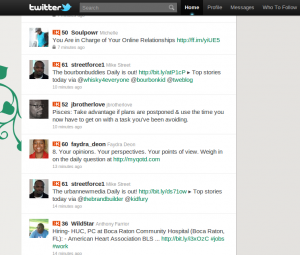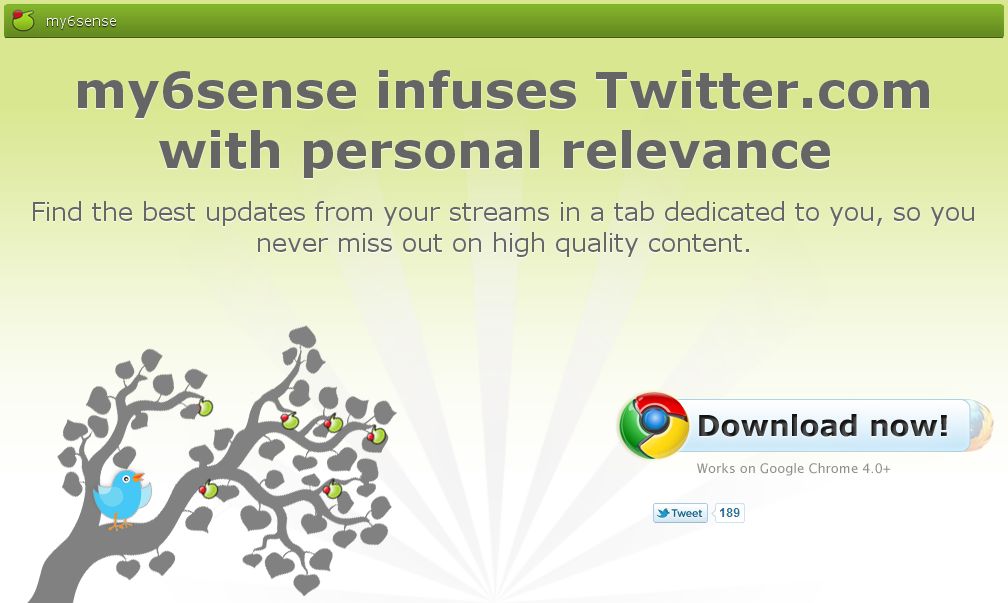Holden Page at Pages Are Social recently wrote a piece about the relevant web being nameless. I can’t say that I really disagree, but it got me thinking about a few things. It’s true, services like my6Sense take the focus away from the authors/brands and place it on the actual content.
So what are bloggers and blog owners to do? While My6Sense is on the small scale of things, and the few who support My6Sense have come to love it, there is no doubt in my mind that a backlash will occur.
A number of things came to mind here. I remember not so long ago, when bloggers lamented the loss and fragmentation of blog comments. Services like Disqus came out of nowhere, giving ownership of comments to the commentators rather than the bloggers. I don’t see many blogs these days that don’t use Disqus or something similar. The blogosphere changes, content creators change with it.
I view an experience like my6sense as something like the radio for the written word. Of course, my6sense is not a corrupt industry where content creators pay the stations to play their junk, tricking the listener into thinking what’s popular. Rather, you have a channel of content customized by the reader. What they see is exactly what they are looking for.
The similarity with the radio is that, once you come across awesome content, you will want to know who wrote it in the same way that you would want to know who sings your favorite song on the radio. You will probably go further than just waiting for the radio to play that song and go buy the album. Just on the strength of that one piece, you are motivated to own tho whole shebang.
My6Sense and future technologies like it are fundamentally changing how we consume news, and its a benefit is purely for the consumers, not the producers.
Uhm….kinda. There is a saying that any blogger worth his salt has heard. Many have taken it to heart and many others write it off as bull: “Content is King.” As it stands now, you can pretty much write crap as long as you market it well. If you are awesome and networking and connecting with people, your writing skills don’t have to be that strong. I won’t point out any artist in particular, but how many have you hear don the radio or seen on stage at an awards show and wondered how the hell they got there?
Now, take the front man away. Ditch the artist and the blogger. All you have left is their content and, if it can’t stand on its own, that creator fails. This is where my6sense and the few other services like it are taking us. You won’t choose your favorite sites by how awesome you think the author is, but by how great their content is.
Great for the consumer, but all you bloggers half-assing it better get back to basics before it’s too late.
- via Holden Page on The Relevant Web is a Nameless Web
- Get my6Sense here

